This week’s post is Part 2 of the Dennis Farm SHPO Shout Out. If you missed Part 1 last week, go back and read it before enjoying this one!
Three Centuries of the Dennis Farm: Looking Forward (continued)
By Denise Dennis, President & CEO of the Dennis Farm Charitable Land Trust
Historical Features
My ancestors transported skills they learned in New England to the farm. This is apparent in the features that make the farm historical technically: the layout of the farmstead is consistent with that of a New England farm circa 1800; the stonewalls that line and cross the fields and woodland, form the walls of the barn complex foundation, and surround the cemetery are reminiscent of New England stonewalls; and the nineteenth century farmhouse is a classic, New England timber-frame saltbox.
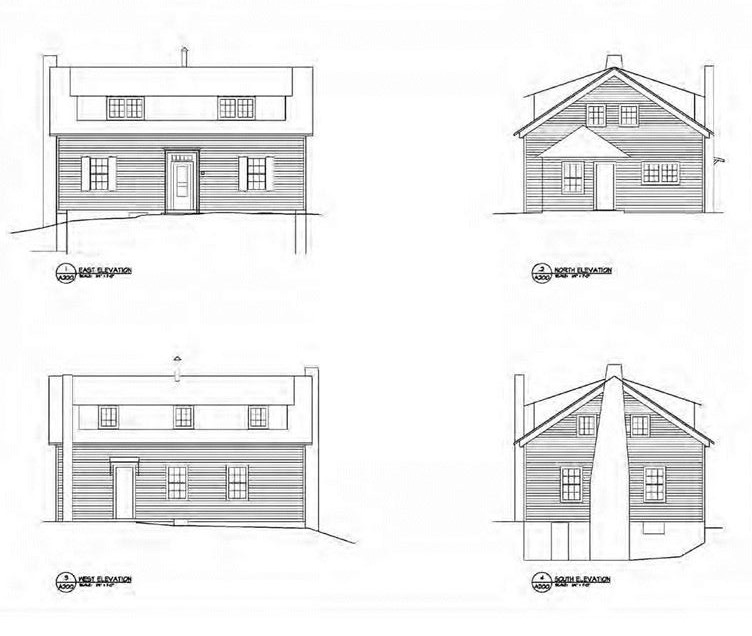
Elevations of the Dennis Farm house as part of the National Register nomination prepared by Wade Catts/RPA, Douglas McVarish/Architectural Historian, and Tom Scofield, AICP.
The stone foundation of the first house, called the Prince Perkins Archaeological site, is another feature attesting to the farm’s historical and archaeological integrity.
Education and Culture
My great-great grandfather Henry Dennis was an avid reader with enough disposable income to purchase books and newspaper subscriptions for his family. The books whose themes included religion, history and education were, like the land, passed down to the present generation.
A number of books are among the artifacts I donated to the Smithsonian Museum’s National Museum of African American History and Culture (NMAAHC). We were honored that in NMAAHC’s 2015 preview, Through the African American Lens: Selections from the Permanent Collection, held at the Smithsonian’s National Museum of American History, the first exhibit in the exhibition was Early Settlers: the Perkins-Dennis Family, featuring our family tree, photographs and several of the artifacts including Henry Dennis’ spectacles.
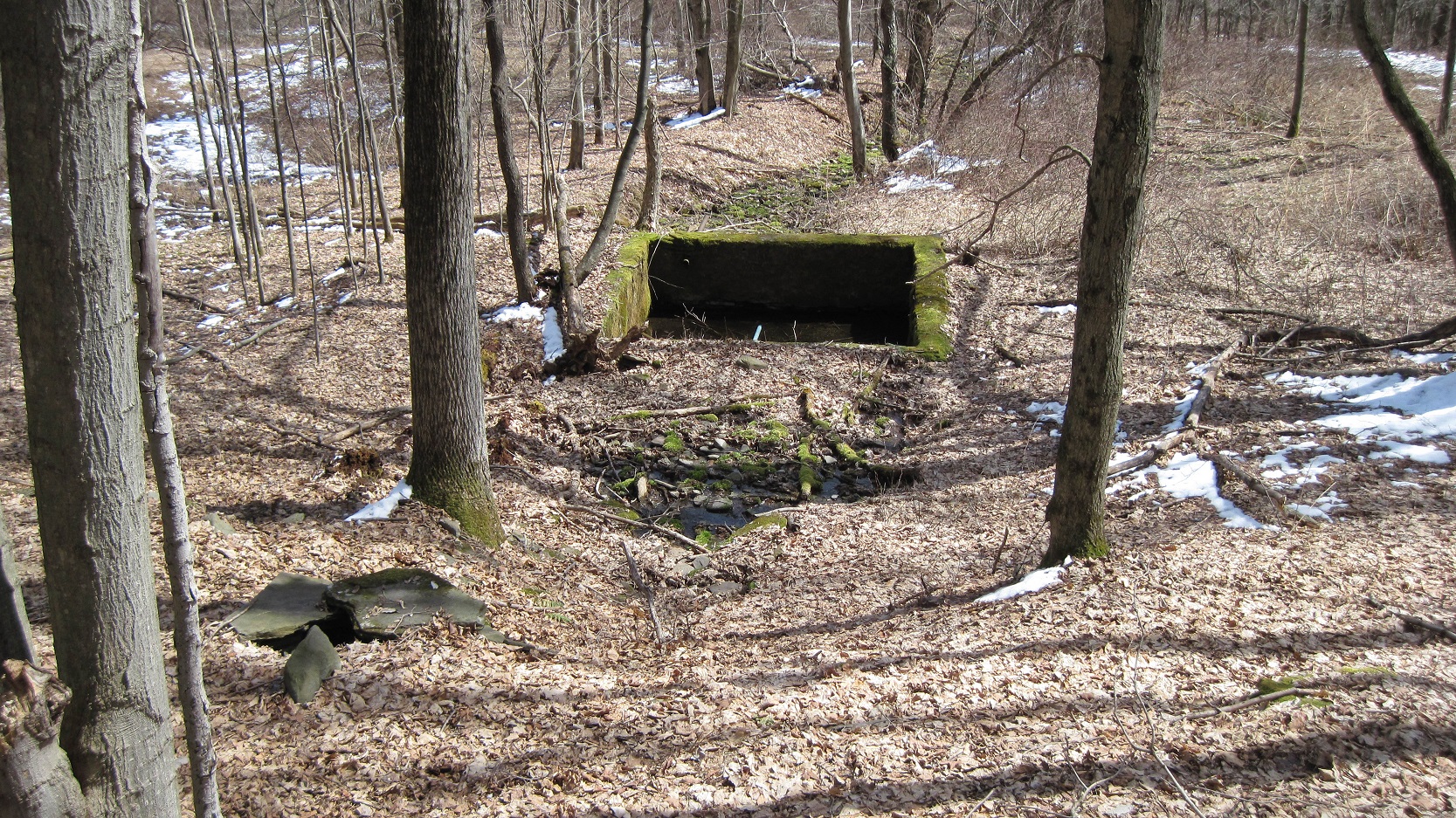
Prince Perkins Homestead site. Image from Dennis Farm National Register nomination.
Twentieth Century
Following Henry Dennis’ death in 1882, the oldest of his and Angeline’s three sons, Perkins William “Will” Dennis left Lincoln University where he was studying and held the reins of the farm until his own death in 1918.
Will Dennis and his wife didn’t have children, but his youngest brother Sumner, my great-grandfather, had five children of whom three Norman, Edith and Hope would be stewards of the farm. Every summer until his late teens, Sumner’s oldest son, Norman Henry Dennis, boarded the train from Wilkes-Barre where Sumner had moved in 1886, to work with his Uncle Will on the farm. Norman Dennis knew every inch, every tree, every field, every bush, the creek, the spring—on and about the farm.
A half-century later, as I was growing up, he taught me our family history and introduced me to the wonders of the farm. It is because of him that I’m doing the work I’m doing today to restore and maintain the farm and its history and share it with the public.
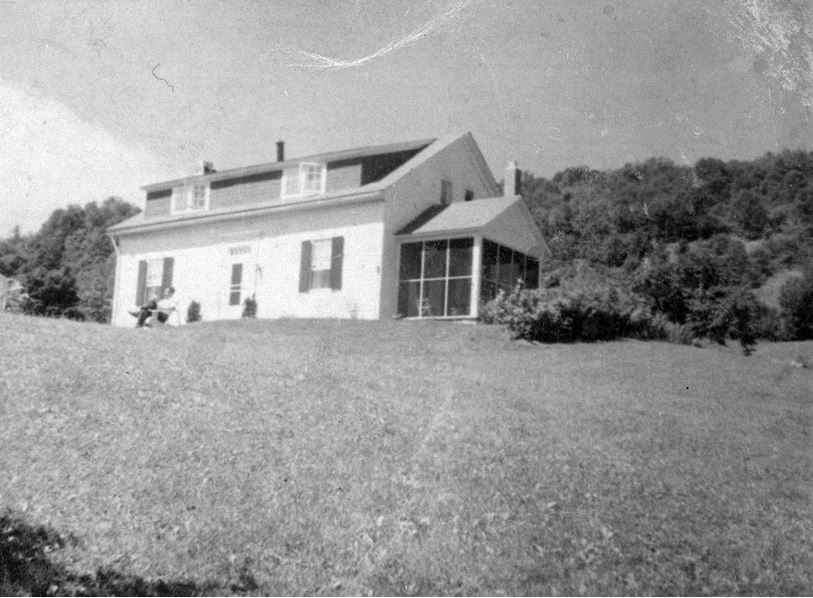
Ca. 1945 photograph of the front of the Dennis Farm house. Image from Dennis Farm’s National Register nomination.
Will Dennis passed away in 1918 and for twenty years the farm lay fallow. Then, in 1939, Sumner’s oldest daughter, my great aunt, Edith Angeline Dennis restored the farm as a gift for her father. Edith modernized the farmhouse to be a summer home for the family. Sumner Dennis spent the remaining summers of his life in the house where he was born and on the land he’d worked with his father and brothers throughout his youth.
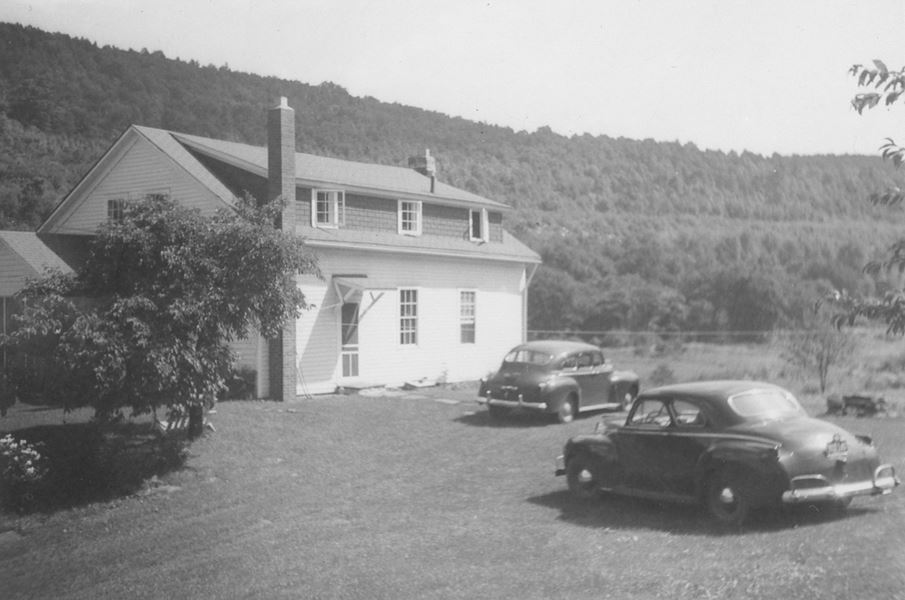
Ca. 1945 photograph of the rear of the Dennis Farm house. Image from Dennis Farm’s National Register nomination.
Twenty-first Century
Sumner Dennis passed away before I was born, but the family continued to go to the farm in the summers during my childhood and I, too, loved it. When Edith Dennis passed away in 1980, she bequeathed the farm to her only remaining sibling, Hope Dennis.
In 2001, Hope and I founded The Dennis Farm Charitable Land Trust for the historic preservation of the farm and to develop the site as an educational and cultural resource for scholars, researchers, cultural heritage tourists, and school groups. Hope Dennis passed away in 2006 and entrusted our plans for the farm to me.
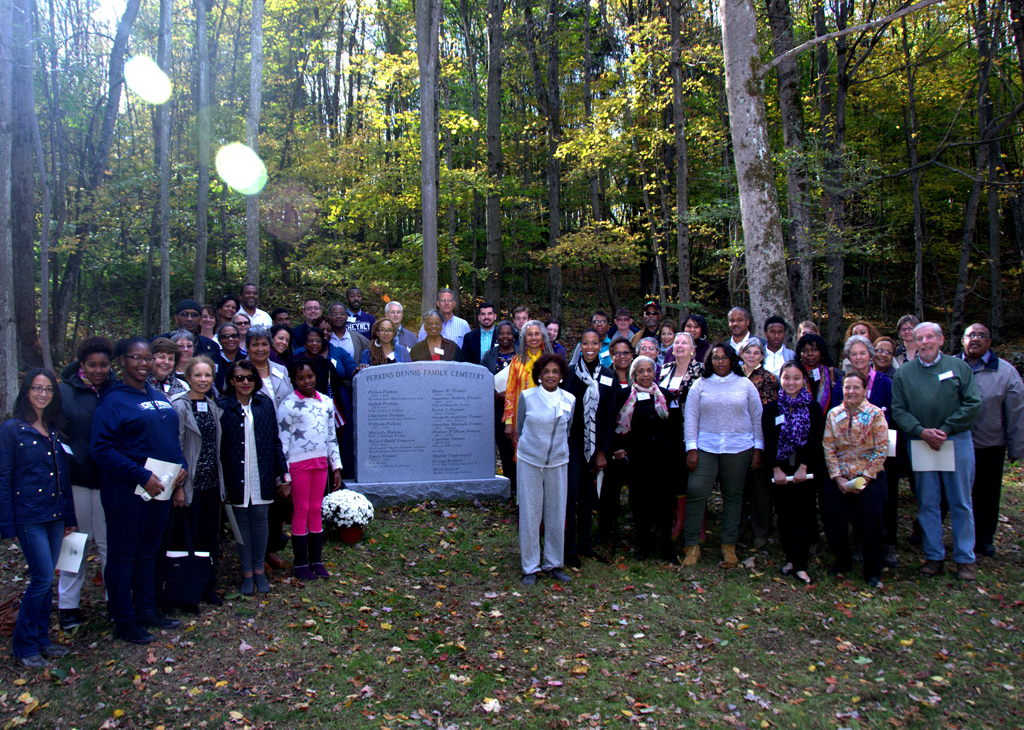
Photo from the 2nd Annual Charitable Land Trust symposium on October 8, 2014. Image courtesy of Dennis Farm Charitable Land Trust.
Since then, my wonderful team and I have been successful in meeting several of our goals among them, creating educational collaborations with a number of universities on specific projects, and building an on-going partnership with nearby Keystone College that hosts our annual symposium and provides student docents for tours of the farm.
We’ve had visitors from as nearby as Kingsley, PA where the farm is located, to as far away as California and South Africa. All, visitors, students and scholars are enthralled by the beauty of the land and fascinated by the story of this family of free African Americans who were landowners in rural Pennsylvania before Abraham Lincoln was born.
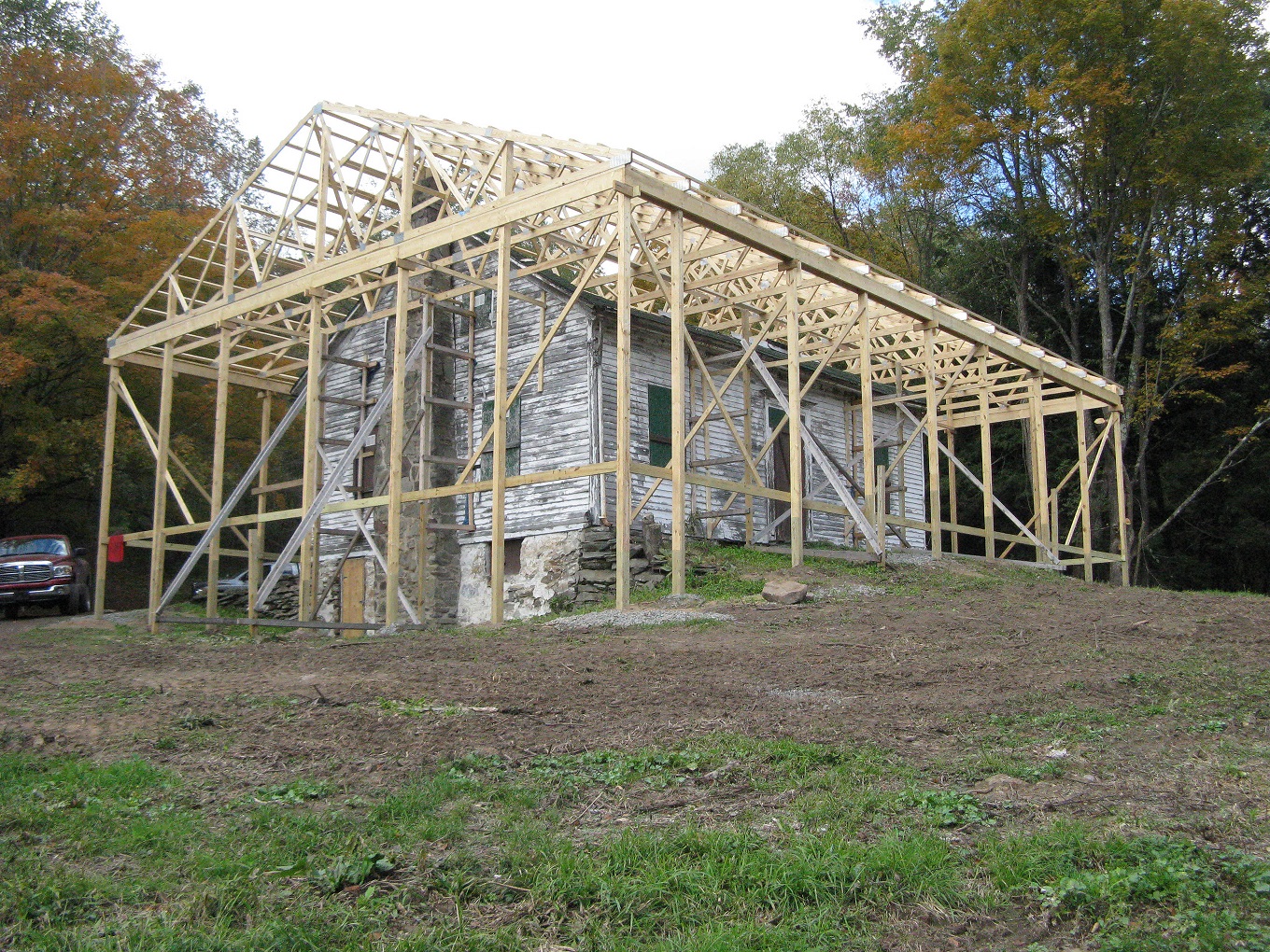
The Dennis Farm exterior ‘skeleton’ for stabilization. Image courtesy of Dennis Farm Charitable Land Trust.
Today, we are raising funds to restore the nineteenth century farmhouse, which caved in during Hurricane Irene, and to build an interpretive center on the site. In the meantime, we invite you to visit us on the farm or at www.thedennisfarm.org.
What a beautiful story. Thank you for sharing.
To Whom This May Concern:
Slavery was an awful thing in the United States. The only people the southerners could get were the black people & sold them like cattle at every auction & mistreated them too. Those were probably people who went to church every Sunday & acted like God’s people & kept people in bondage everyday, nothing but hypocrites. Thank goodness for southern people who hated it & helped them escape, but the punishment for them was death as they were accused of stealing property from others (how sad) & then there was Harriet Tubman one of the greatest women who helped many slaves escape. Bondage is a terrible thing.
I absolutely loved the tour on Juneteenth of all days, hallelujah! I’m curious if you considered building a facility to rent for weddings? The atmosphere is perfect.